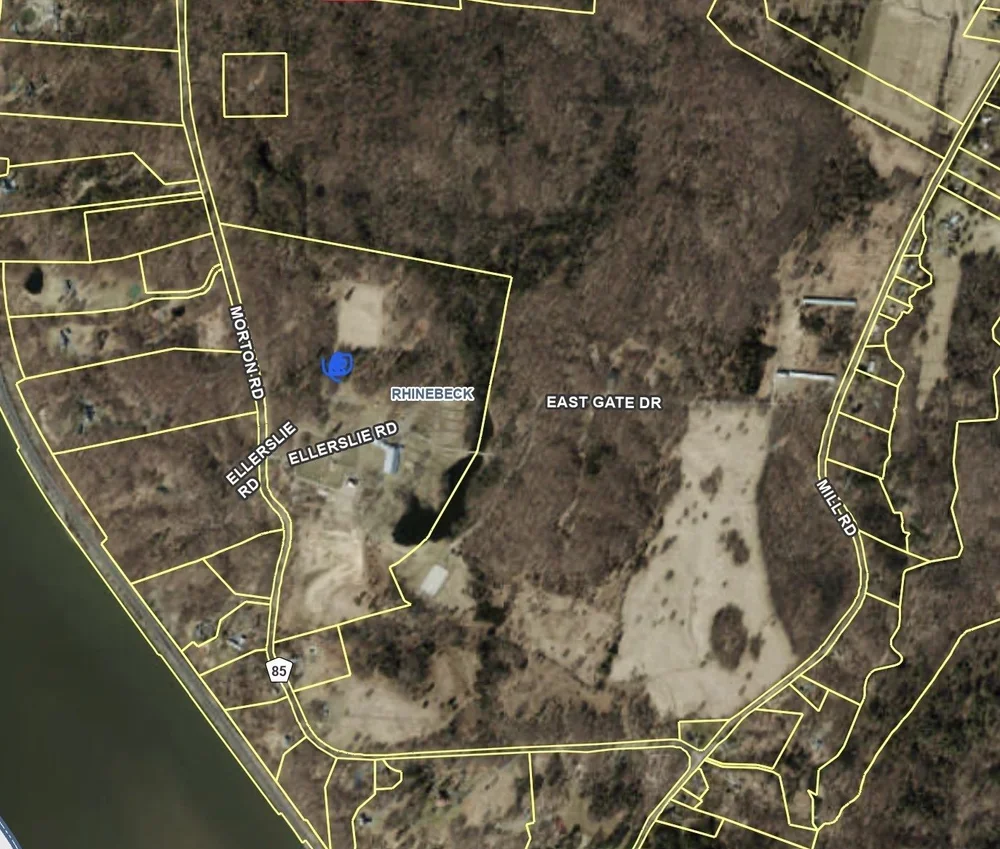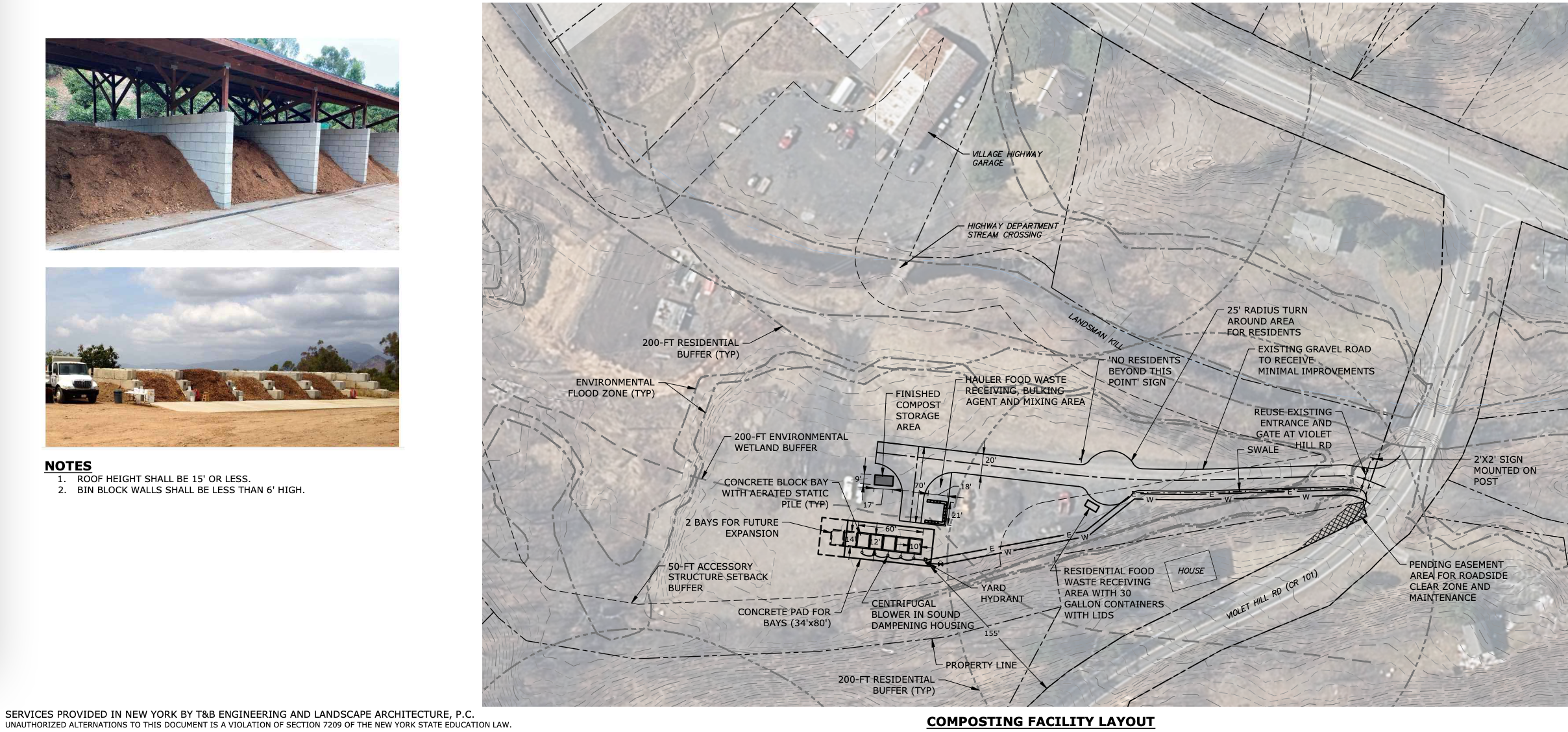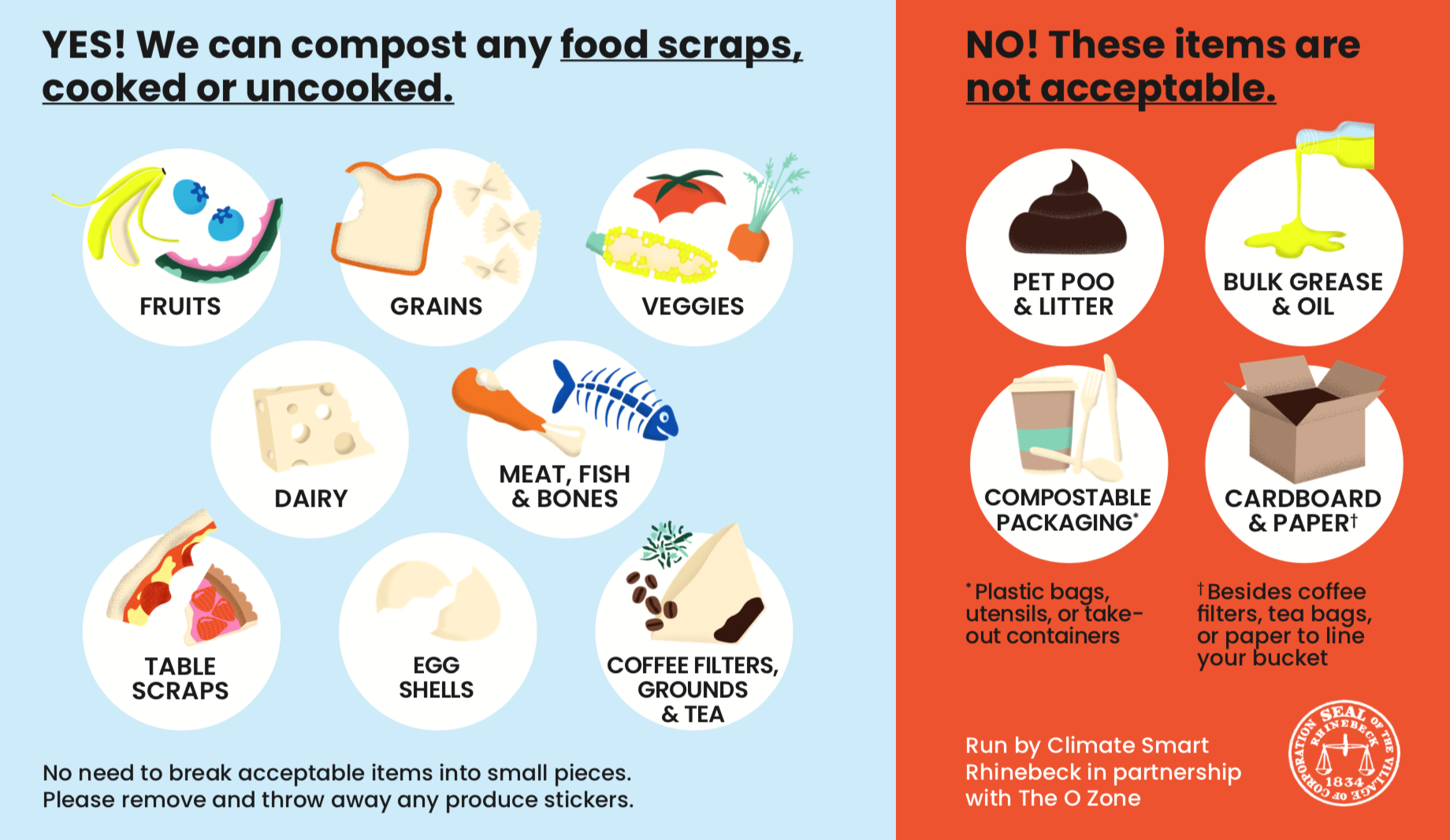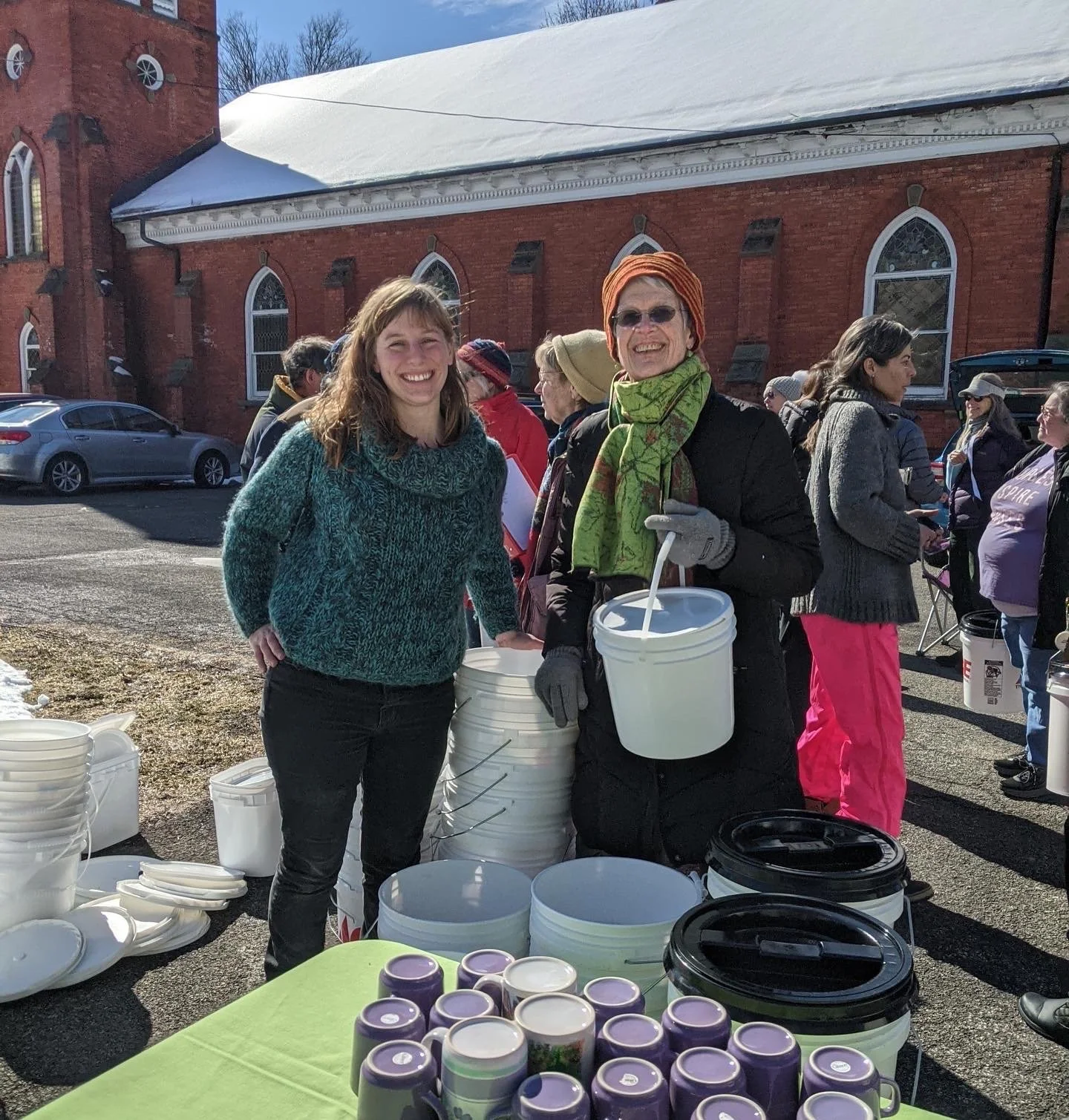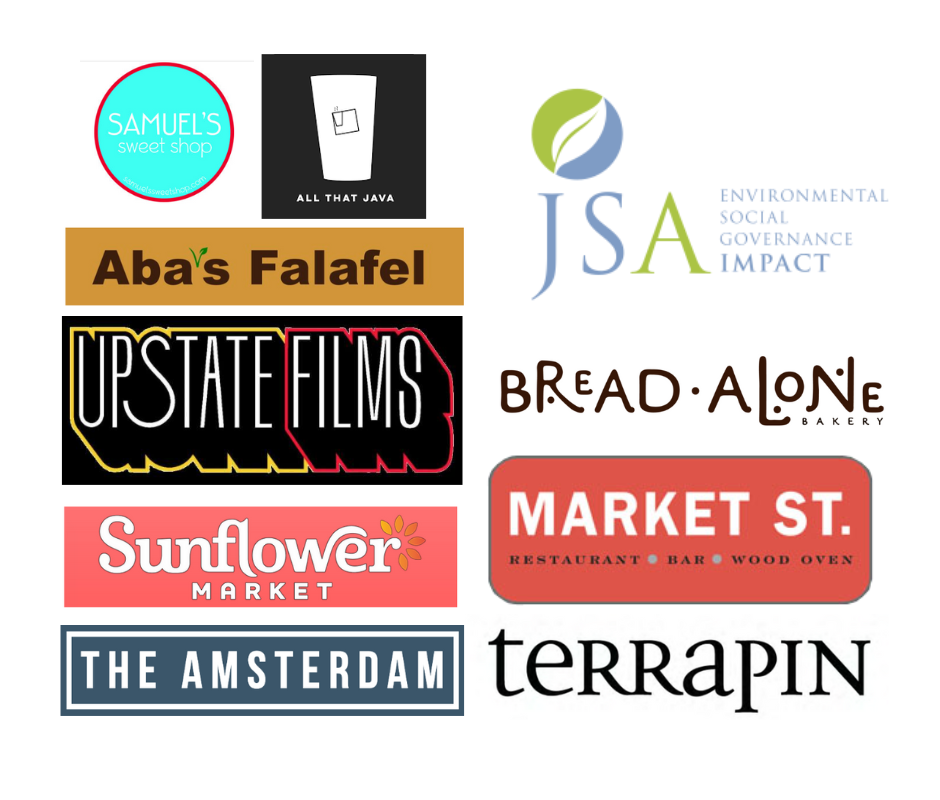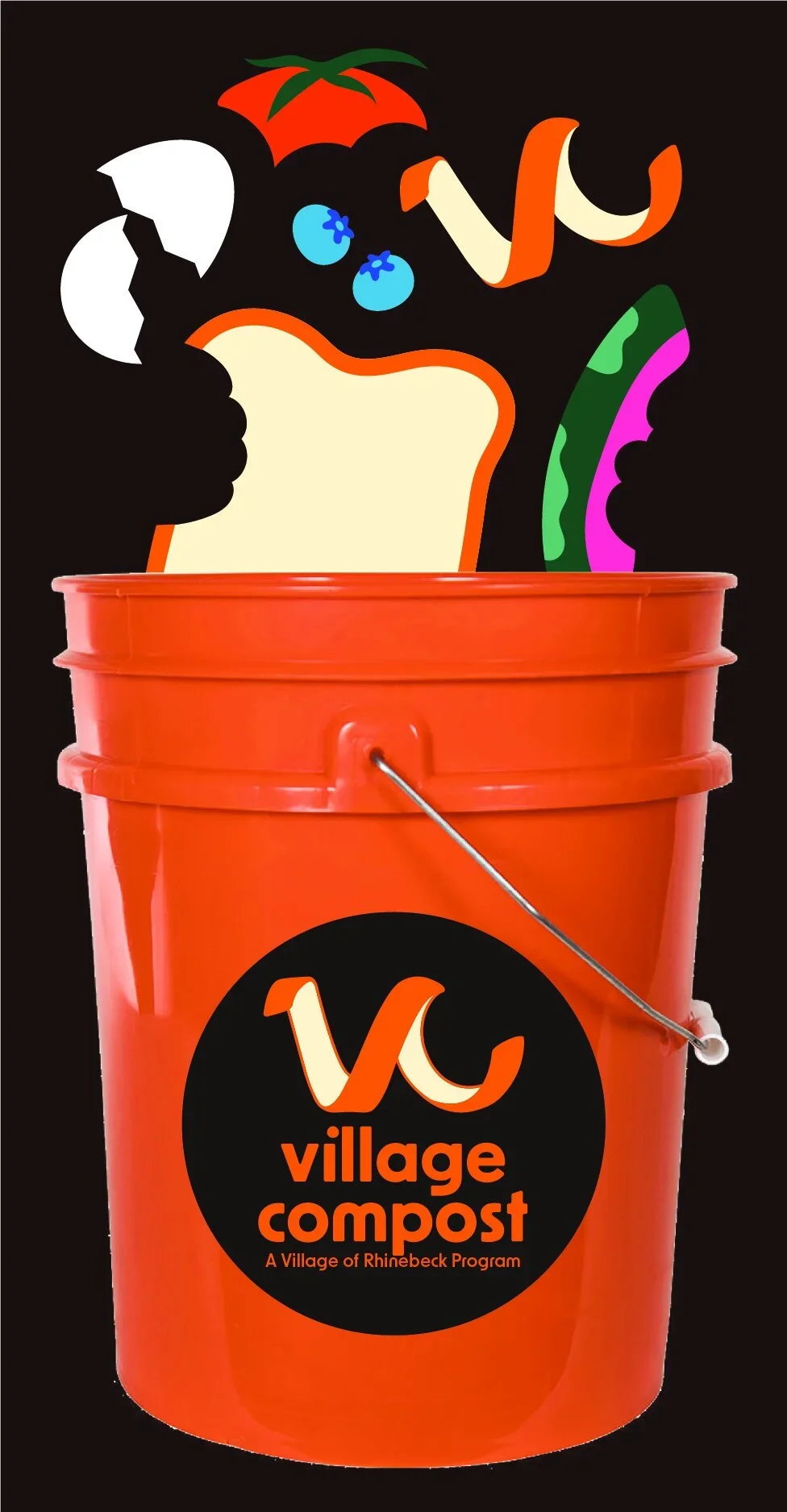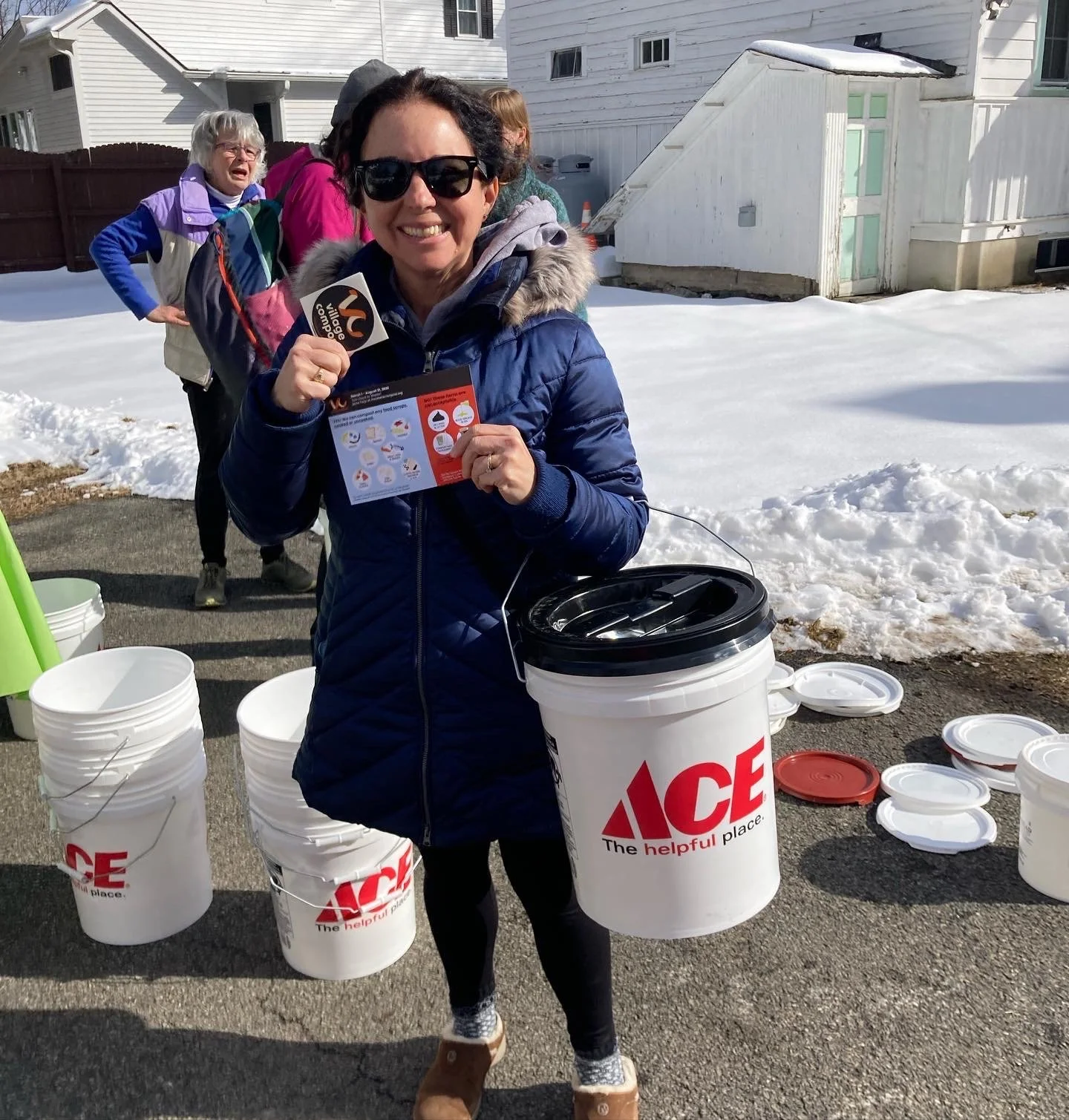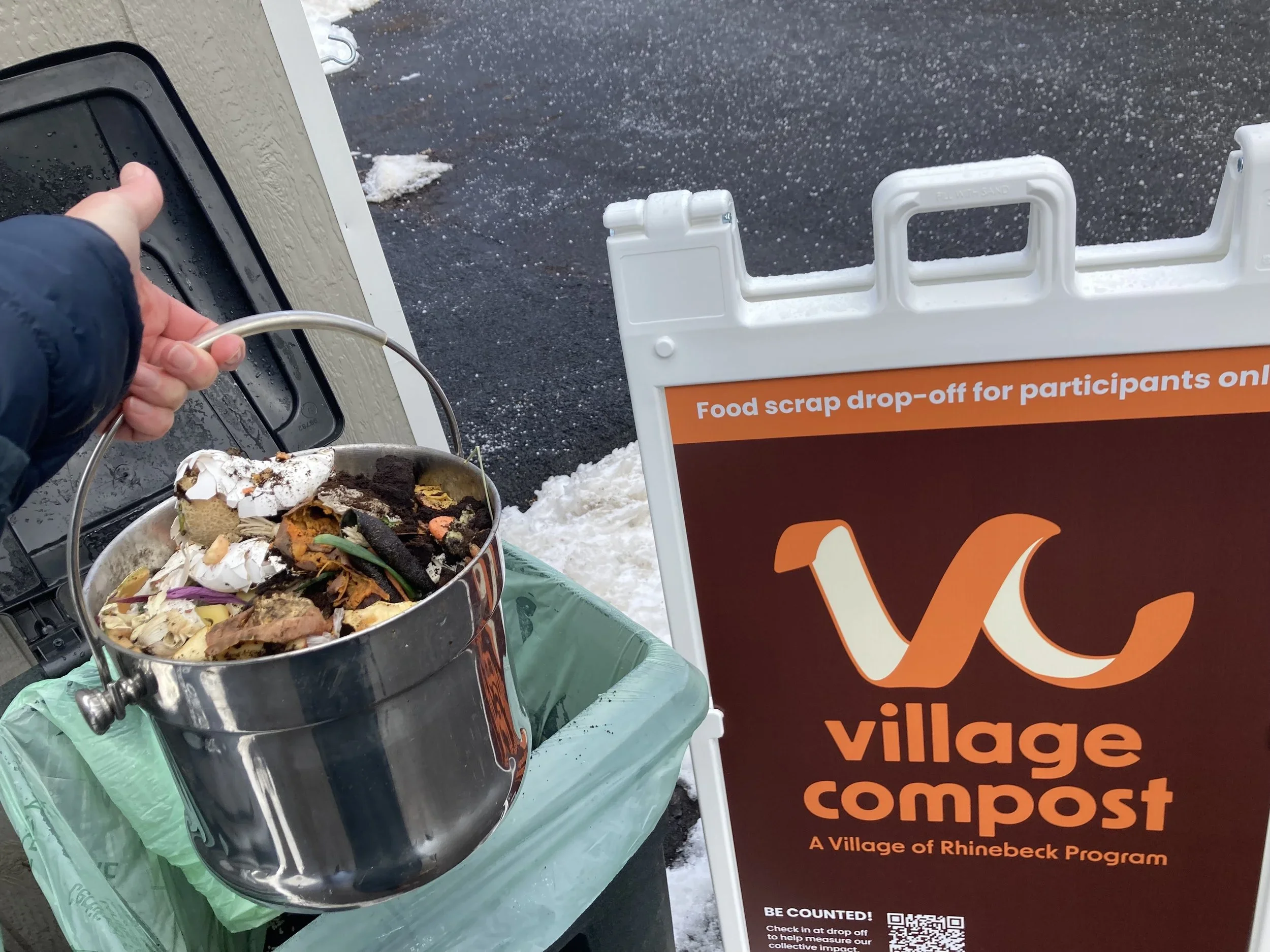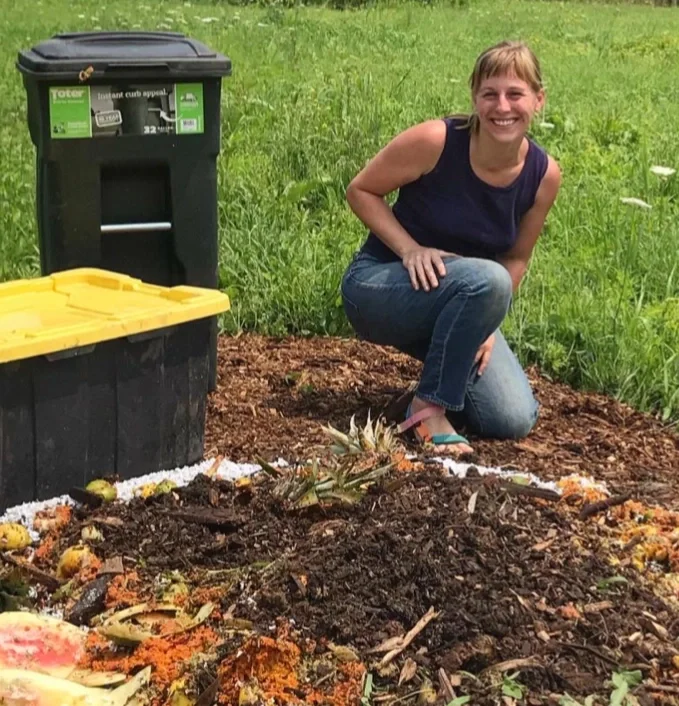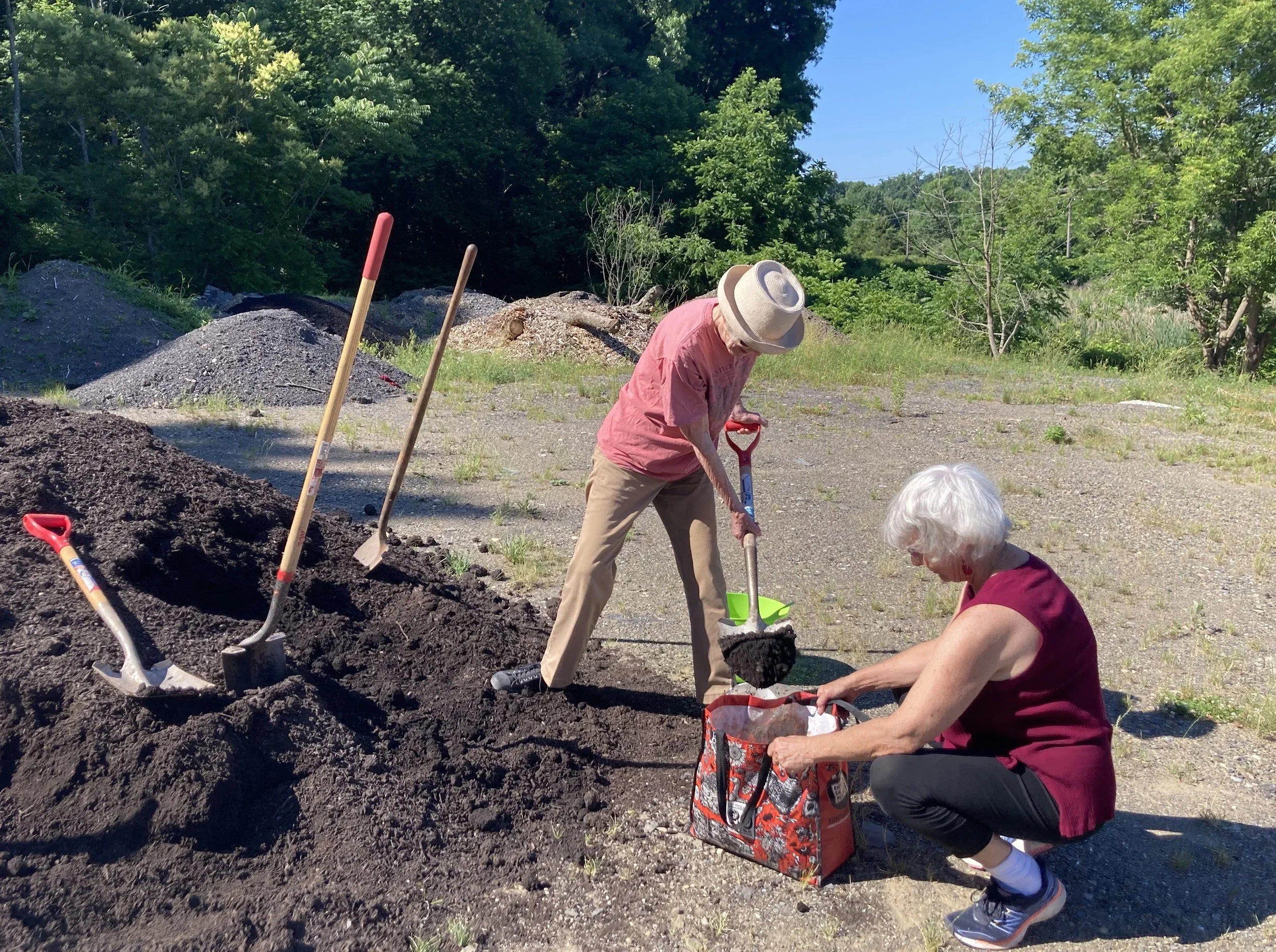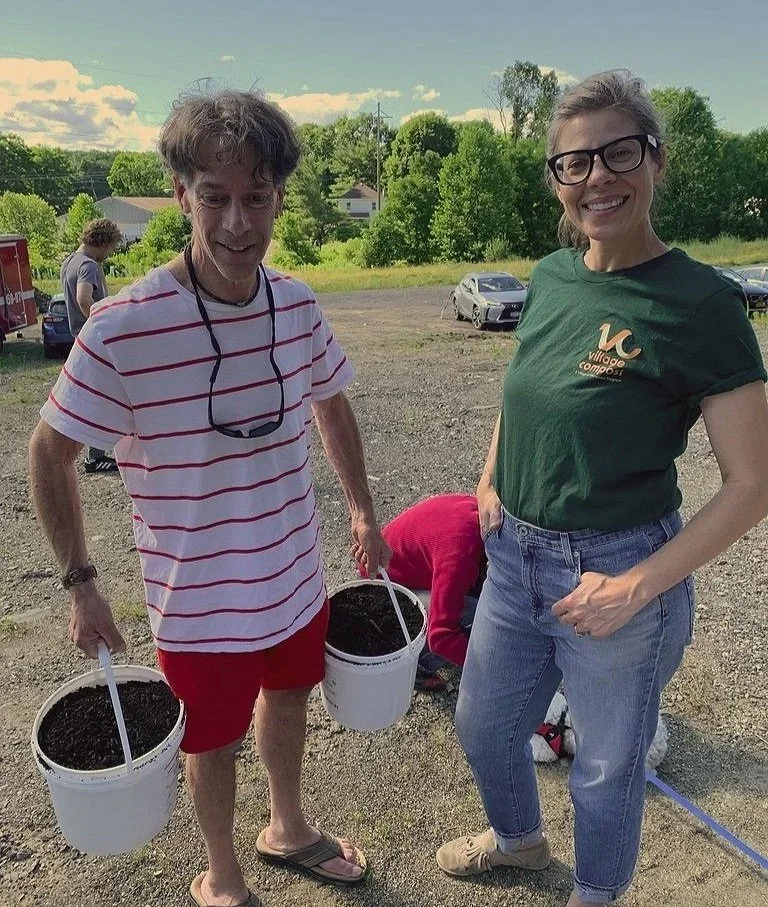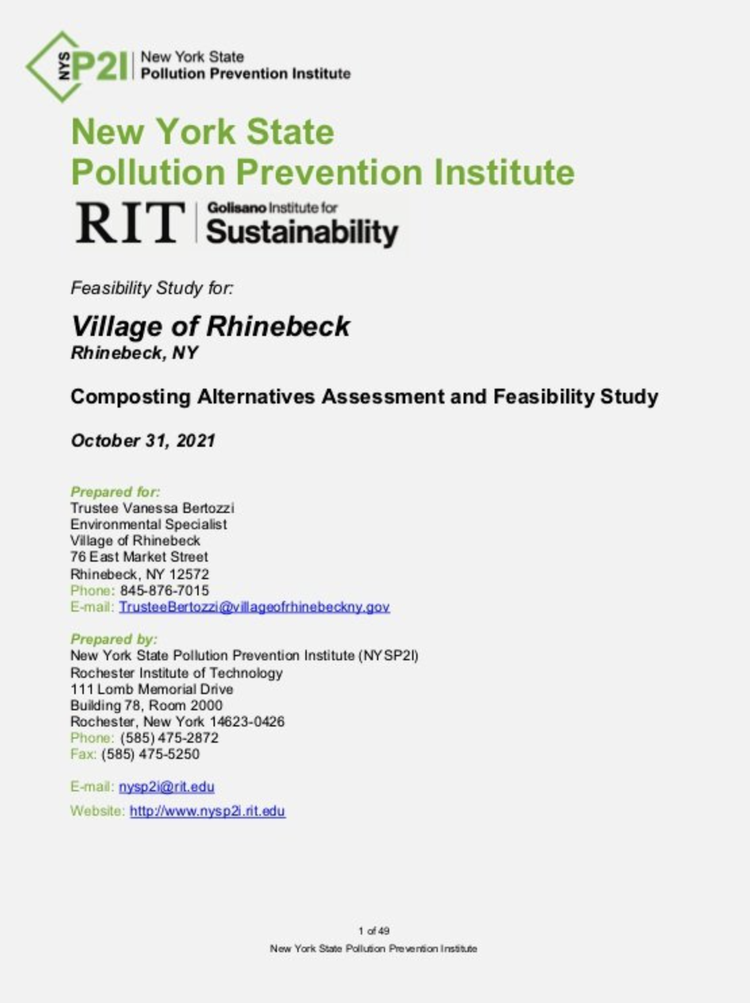
There are layers to this project
Compost Archive
-
Research began in 2017 with a survey regarding composting in conjunction with the Town of Rhinebeck, Tivoli, and Red Hook. Although respondents expressed interest, how to best fund the project and proceed still needed to be determined.
-
In 2019, the Village of Rhinebeck’s CSC Task Force formed the Compost Subcommittee to take the next steps and research how to provide solutions that would:
Directly benefit the local community. Produce compost that is then put right back into our parks, home gardens and local farms
Reduce greenhouse gas emissions, taking the carbon footprint of transporting scraps into account
The more local, and the more efficient, the better. The best solution, if feasible, is home/backyard composting
-
In March of 2021, the Village Board signed an agreement for RIT’s Pollution Prevention Program (P2i) to work with us on a feasibility study. The consulting ($22,000 value) was fully funded through P2i’s backing by the NY State Department of Environmental Conservation (DEC).
Spring 2021 through fall 2021, the Village was lucky to have P2i staff lead us through an evaluation of options for food scrap collection and composting. The Compost Subcommittee used this research to craft a pilot proposal for the Village Board.
-
Cecily Frazier, Rhinebeck Village resident and Master Gardener Volunteer, put together this 1-2-3 Guide to Home Composting.
Home composting is the most environmentally friendly way to handle inedible food scraps. Doing it right in your backyard means you’re not adding the additional emissions associated with transporting the food scraps to a composting site and you can use that compost to build healthy soil right in your yard.
Benefits:
Compost encourages the production of beneficial bacteria and fungi that break down organic matter to create humus, a rich nutrient soil-like material beneficial to plants.
Compost enriches soil, by providing spaces in the soil to hold and retain air and moisture and suppressing plant diseases and pests. It is not a fertilizer but makes soil better able to absorb existing nutrients from soil by providing a healthy community of soil organisms.
Compost reduces the need for added water and fertilizer.
Backyard composting provides storage for CO2 and reduces methane production both in the home garden and at the landfill.
-
The Village subsidized a paid, drop-off pilot, in partnership with a local hauler. See archived materials from the pilot on this webpage.
March 1 - Dec 31, 2022: Village Compost, the Village of Rhinebeck’s municipal compost pilot, enabled 100 households + 6 businesses to divert 2 tons of food scraps per month. CO2e reduced by 4 tons per month = 10 cars off the road!
At a high level, we attempted to:
Benefit our community. Rhinebeckers can be proud to be home to this pilot and to be leaders in our area. A deeper understanding of how our food systems nourish the soil also created community connectedness. Part of the pilot was engaging with community stakeholders (like restaurants, the school district, assisted living or nursing homes, the hospital, the fairgrounds) to explore interest in scaling up and tying in sustainability education.
Reduce our emissions. Even factoring in transportation, our pilot sequestered carbon rather than emitting methane from food rotting at landfills.
Make it manageable. Our pilot partnered with a third party vendor, The O Zone, who has experience in hauling food scraps. This made sense for an agile pilot.
Assess whether and how to scale up: The goal of the pilot was to assess demand from the public. If there’s demand, how might we scale up after the pilot? The Village Highway Department already uses the land behind the garage to recycle yard waste into mulch. Adding composting here means that browns would be right there to mix with greens.
-
January 2023: Village government got two grants totaling $300,000 to construct a municipal composting facility at the Village Highway Department property. Compost process was proposed to be an aerated static pile system (ASP), using the leaves and brush gathered through yard waste mulching and the equipment already on site. Village engineering firm, Tighe & Bond, created a proposal with an estimated budget. The Village received DEC registration, authorizing them to process food scraps into compost on site.
February - April 2023: Town Planning Board approval process. We presented to the Town Planning Board on March 6 (see materials here and here). Public hearing held on April 3 at Town Hall. The public hearing period extended to May 1 (County permit approved. Trustee Bertozzi’s update).
May 2023 - The Village Board withdraws its application before the Town Planning Board due to pushback from neighbors and the Town Supervisor and Town Board’s alignment with those neighbors. PDF of Trustee Bertozzi’s letter to the Town Planning Board. The Village Board gives back a $100,000 grant from Partners for Climate Action, since funds had to have been spent within one year.
August 2023 - The Village Board releases a Request for Proposals for farms located within 4miles of the Village Center to subcontract for municipal composting.
September 2023 - Trustee Bertozzi brings a vote to the Village Board to accept a proposal from Michael DeCola of Ellerslie Stables to subcontract for composting.
-
February 2024 - Agreement between Ellerslie Stables and Village Board is finalized
September 2024 - Final approval from NY State to start spending the DEC grant money
December 2024 - The Village launches the food scrap drop off spot in the municipal parking lot and the program commences
-
Dec 2024 - Jan 2025: onboarding pilot participants into the new, permanent program
Jan - March 2025: Press, outreach, marketing to get to a goal of 200 households
May 2025: First free share of finished compost given out
June 2025: Village and Town come to an agreement whereby town residents can participate
September 2025: Fully operational site, equipment, and pad extension are shown off at a public site tour at the farm, as part of Climate Solutions Week
October 2025: Town-wide mailer to gain more participants
November 2025: DEC grant is completed
It’s been a long and complicated process getting this program off the ground (errr into the ground?). Check out this webpage for the history of how our dedicated volunteers on the Climate Smart Task Force made it happen. The archive here is intended to help other communities with examples of steps we took.
2024/2025: Setting Up the Compost Site at the Horse Farm
After an RFP process, the Village Board signed an agreement with Michael DeCola of Ellerslie Stables, which will act as a subcontractor to manage composting at their farm. The farm will collect a load of food scraps from the Village center once a week. This means that additional truck traffic entering the farm due to the Village Compost program would be a once or twice a week delivery via the farmer’s truck. The program is planned to be free for all.
Ellerslie Stables had already been composting and their compost site is set back from neighbors and wetlands (per DEC requirements). The existing compost site is located on his over 500 acre farm, where they composts manure and shavings from over 30 horse stalls. Ellerslie Stables received DEC registration for the composting site to be able to receive approximately 2 tons of food scraps per week. The DEC Division of Materials Management oversees and regulates compost sites in NYS.
The Village was awarded a $200,000 grant through the DEC’s “Municipal Food Scraps Recycling Initiatives” round of funding. The DEC indicated that the Village could still use the $200,000 grant for site improvements and equipment at the farm to enable proper incorporation of food scraps per DEC regulations, such as adding an Aerated Static Pile system (ASP). The creation of compost is considered a farming practice by the NY State Department of Agriculture and Markets.
See the Daily Catch’s article.
While we worked to implement the ASP system at the farm, the Compost Subcommittee planned the launch and onboarding process on the participant side.
Blue dot showing the existing compost site at Ellerslie Stables
2023: The Scrapped Highway Dept Site Plan
Here you see a preliminary site plan from Tighe & Bond. The proposed compost facility would have been located at the Village Highway Department property, with an entrance off of Violet Hill Rd. The site would have been located next to the pre-existing mulch recycling operation.
The Village would have sold the finished compost — much as it currently sells mulch — to offset the cost of operating the site.
As part of our application to the Town Planning Board in 2023, we did a site visit hosted by Aleks Jagiello, who manages an ASP facility in Westchester. He explained the aerated static pile (ASP) process for us.
ASP compost systems do not stink! When the pile is oxygenated, it heats the pile to 140 degrees F. This environment keeps microbes doing their work and does not lead to sulfur and methane, the chemicals that make food rotting in landfills stink. The hot temperatures also deter wildlife.
The 2022 Compost Pilot
Pilot Elements
Duration: Food waste drop-off and collection happened from March 1 through December 31, 2022.
Drop-off model for households: Each household could receive a lidded bucket. As often as they wanted to, whenever they like, they would empty their bucket into a larger collection bin in the municipal parking lot behind the police department.
Curbside pickup for businesses: Village businesses contracted with The O Zone independently for commercial rates, and partner with the Village on community engagement.
3rd party partner: Our partner, The O Zone, did a weekly pick up and hauled to UCRRA (Ulster County Resource Recovery Agency) for composting.
Payment: Each of the 100 households paid their monthly fee to our partner, The O Zone. The Village subsidized this pilot such that households paid a reduced municipal rate. Sponsorships were available to households in need.
Participating businesses pay The O Zone’s commercial rate.Closing the loop: Finished compost was available to participants at a collect your compost day.
Launching the Pilot
Much of the work of the Compost Subcommittee was planning promotions, outreach and communications about the new program. Luckily, we had a professional graphic designer on the subcommittee! We enlisted high schoolers in the Rotary Interact Club to help go door-to-door with postcards explaining the program, with a link and QR code to a registration form.
High schoolers also made a promo video. We asked local blogs and community groups with newsletters to share the news, as well as the local press. We posted on social media on Instagram and Facebook. Because of the small scale of our community, we could personally reach out to friends and neighbors.
We ended up with just over 100 households who agreed to join the pilot.
Educating and Onboarding
We created a postcard with the Dos and Don’ts of the program. We had a “bucket brigade” day where we gave out lidded buckets, stickers, and hot cocoa and talked people through how to get started. The Subcommittee went to great lengths to repurpose small used lidded buckets from grocery stores, so as not to contribute more plastic to the world. We also had Williams Lumber donate 5 gallon lidded buckets.
We held Zoom info sessions in partnership with the public library and tabled at local events. We tried to make it fun and neighborly at every step!
Household Fee Structure
Upon acceptance to the pilot, each participating household was asked to register through The O Zone and pay a monthly subscription through the website.
Level One: $6/month (Household of 1)
Level Two: $8/month (Households of 2)
Level Three: $10/month (Households of 3 or 4)
Level Four: $12/month (Households of 5 or more )
For the pilot, the Village government paid a monthly fee, to enable this subsidized municipal rate you see above. This municipal rate is much less than if you were to do this independently.
Generous members of the community offered to sponsor-a-household in need.
Drop Off
Participants dumped their food scraps at their convenience 24/7 at the collection site in the municipal parking lot behind the Police Station. The O Zone hauled to UCRRA once a week. We encouraged participants to check in with the QR code sign at the drop-off site to “Be Counted” (though not many people did!). We did not have a contamination problem because the unlocked containers were tucked away where the general public didn’t stroll by. We ended up needing way fewer bins that first anticipated. We chalked this up to our demographics: lots of older folks who live alone or just a couple.
About our Pilot Partner,
The O Zone
Amelia Legare owns and operates The O Zone, located in Red Hook. Described as a “low waste sustainability center,” The O Zone provided a variety of composting services in addition to other ways to reduce your household waste. Their retail location has bulk refill stations for soap, shampoo, olive oil, detergent, etc, as well as a variety of products that cut down on plastic. The O Zone also hosts workshops, classes, and other community programming.
The Village was happy to support a local, woman-owned, green business. Amelia has since sold the composting part of her business to Laughing Fox Farm in Red Hook.
Business Participants
Huge congratulations to our locally owned businesses who stepped up as leaders! Participating businesses were given a vinyl decal for their front windows to display their support.
Business Fee Structure
Volume of food scraps vary, business to business. Village businesses were encouraged to contact The O Zone for help estimate the number of bins to fit their needs, discuss logistics of bin placement, and weekly curbside pickup.
HOAs
Some of our Compost Subcommittee members lived in condo developments and convinced their HOA boards to pay The O Zone for their own pickup/dedicated bins right at the developments’ clubhouses. Superstars!
Collect Your Compost Day
Participants could come help themselves to a free share of the finished compost in the spring. We found that not everyone wanted some. Leftovers were used by the Village Highway Dept.
Pilot Wrap Up
From our checkin survey, we found that only 7% wouldn’t want to continue if we extend the pilot or create a permanent program, 13% said Maybe, and 80% of participants gave a hearty Yes. Qualitatively, we have hear lots of positive support from participants, and we have received no complaints, except for the Police Department concerned about people driving oneway the wrong way into the drop-off location in the parking lot. Overall, the pilot was a success, and it encouraged us to pursue making it a permanent program.
Check out the final presentation via the video or these slides.
2021: Feasibility Study for a Municipal Compost Pilot
Spring 2021 through fall 2021, the Village was lucky to have RIT’s Pollution Prevention Institute (P2i) staff lead us through an evaluation of options for food scrap collection and composting. The P2i group provided this consulting for free. The Compost Subcommittee used this research to craft a pilot proposal for the Village Board.
While home composting is the ideal way for residents to handle food scraps, realistically, not every resident will do it. And, we have local restaurants and other companies and organizations that aren’t able to compost on site. How can we divert these food scraps from the landfill?
We researched best practices in other NY municipalities, surveyed stakeholders and community members, and evaluated options for collecting and processing food waste. You can check out this toolkit P2i published, to get a sense of their approach.
Goal Statement for the Feasibility Study:
As part of its climate smart efforts, the Village of Rhinebeck will develop an engaging and effective public food scrap diversion program that reduces greenhouse gases at landfills and builds healthy soil—ultimately becoming a model for others in our region.
In nature there is no such thing as waste. What is no longer needed gets reabsorbed back into the system.

